Nigeria's police: The lingering effects of a colonial massacre
- Published
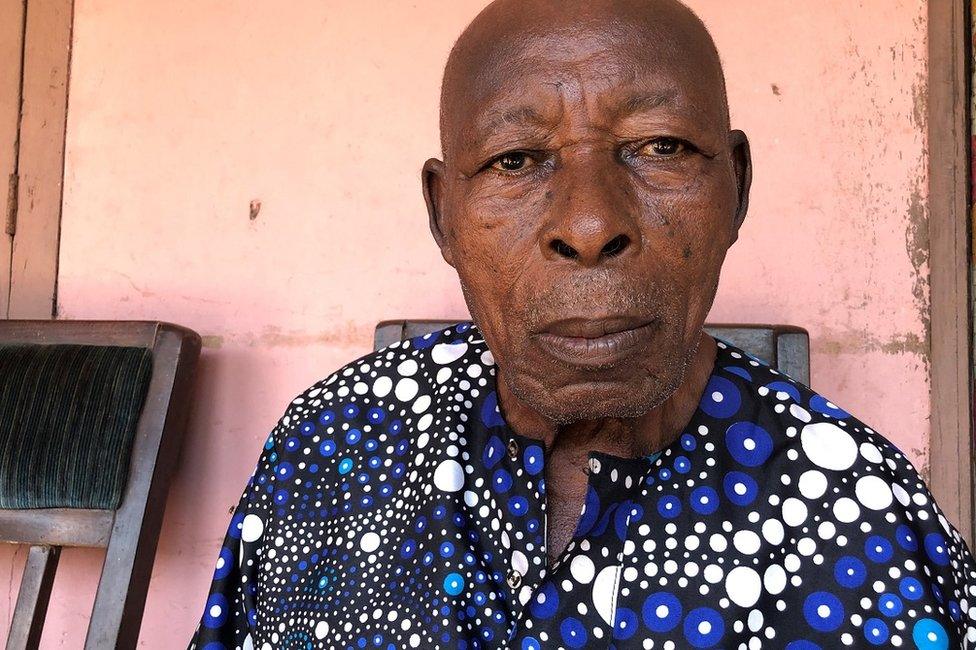
Complaints about brutal policing in Nigeria today echo the reaction to the shooting dead by colonial policemen of striking coalminers in 1949 and, as the BBC's Nduka Orjinmo reports, there are some who believe there is a direct connection.
When the ikoro sounded on the afternoon of 18 November 1949, schoolboy Godwin Aniagbo knew something was wrong.
In traditional Igbo society, the ikoro, a huge hollowed wooden drum mostly carved out of the tough and dense iroko tree, sat permanently in the town square and only sounded in times of grave crisis or to summon people to an important meeting.
Hours before, on his way back from school with some friends, Mr Aniagbo had run into members of the colonial police looking like they were expecting trouble.
There had been days of tension following protests at a local coal mine.
"I saw the Europeans, [about six of them] sitting on the railway line... with their rifles in the centre of the railway.
"They called us to come to them but we were afraid and ran away," he told the BBC, casting his mind back to his early teenage years.
Not long after he got to his home in Iva Valley, in the city of Enugu, he heard gunshots and then the ikoro sounded.
The colonial police, made up of Nigerians and Europeans, had shot striking workers demanding better working conditions at the Iva Valley coal mine in south-eastern Nigeria, killing at least 21 miners and injuring many others.
Local celebrity
"People were running everywhere... many [of those coming back from the mines] were injured," Mr Aniagbo, now in his 80s, said.
Curious to know what had really happened, he set off for the mines, but at some point the crowd was too thick to push through so a disappointed Mr Aniabgo returned home.
As one of a handful of people from that time still alive to tell the story of the massacre, Mr Aniagbo is something of a local celebrity.
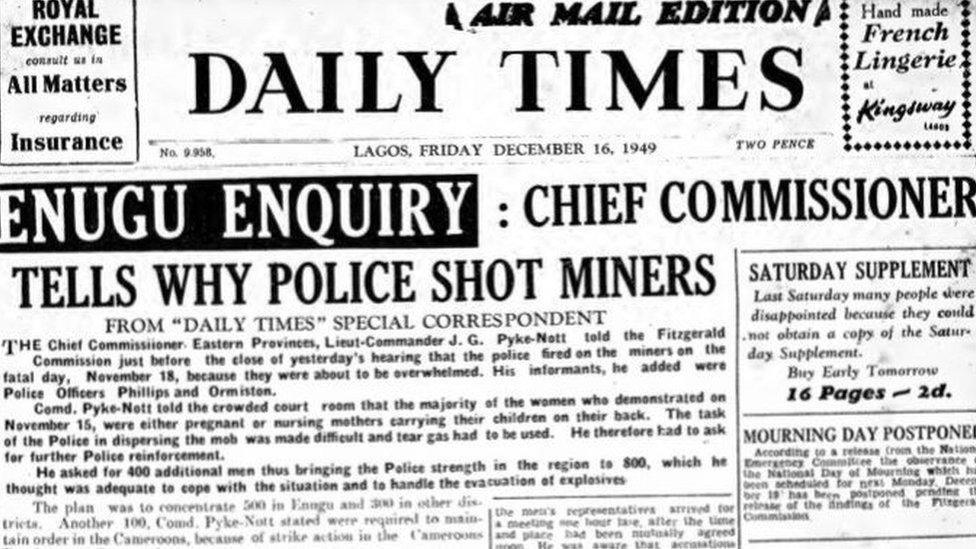
The incident led to further strikes mostly in southern Nigeria and some argue it helped galvanise support for the burgeoning anti-colonial movement that led to independence 11 years later.
During an official investigation, the police defended the shootings by saying they feared being overwhelmed.
But among those that the inquiry blamed were the colonialists in charge of the police for inflaming the situation. The dead are now celebrated in the region as heroes.
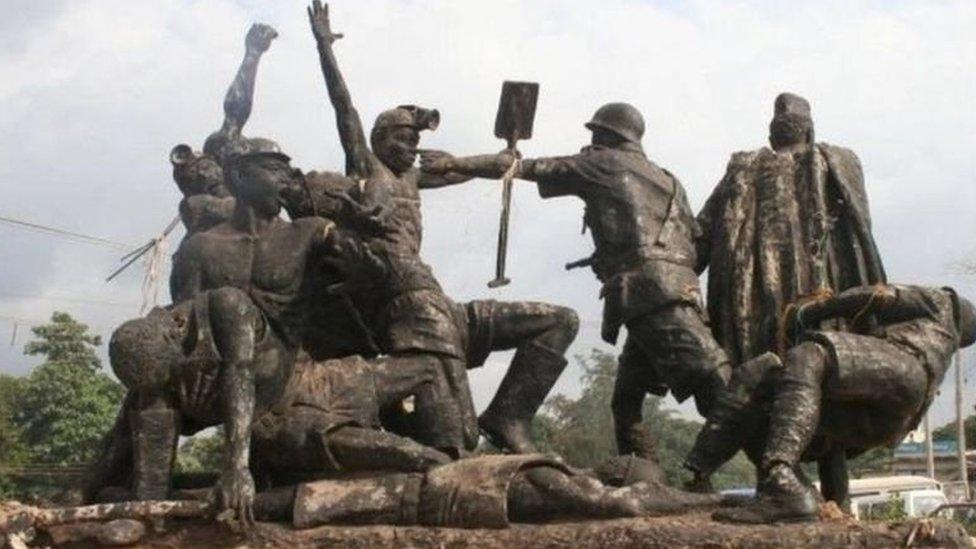
A statue re-enacting the coal mine massacre stands in the centre of Enugu
What may now be an event to be recalled and memorialised nevertheless still has resonance in Nigeria today.
Despite seven decades, and 60 years of independence, passing since the massacre, some argue that policing retains elements from the colonial past.
Last year's wave of demonstrations against police brutality in Nigeria under the #EndSars banner culminated in the shootings at the Lekki toll gate in Lagos on 20 October, which has led to comparisons with what happened in 1949.
On both occasions peaceful demonstrators were met with brute force, though the authorities continue to deny that protesters were killed at Lekki. Amnesty International says more than 10 people died.
The BBC's Mayeni Jones investigates what happened the night protesters were shot at Lekki toll gate in October
The protests were led by young people who successfully called for the disbandment of the Special Anti-Robbery Squad (Sars), which they accused of abusing their powers through arbitrary arrests, harassment and sometimes killing.
The anti-Sars movement was in many ways a manifestation of decades of mistrust between the people and the police.
A 2004 report in the Police Journal, an international academic publication, said the public image of the Nigerian police at that time had not improved from what it was during and after the colonial period, describing it as still operating "with the same arbitrariness, ruthlessness, brutality, vandalism, incivility, low accountability to the public and corruption".
'Police cater to the ruling class'
And little has changed since, according to a survey conducted in some African countries by Afrobarometer in 2016 and 2018. That showed that the police were distrusted by a majority of the citizens in Nigeria, Ghana and Kenya, all former British colonies.


Some people, like Okechukwu Nwanguma of Noprin, an NGO committed to police reforms in Nigeria, believes that the distrust between the people and police in most African countries is because of the way the forces were established.
"The Nigeria Police Force, for instance, was set up by the British to cater to the whims of the ruling class and that explains why despite Nigerians being in charge since 1964, policing in Nigeria has not improved," he said.

You may also be interested in:

It is a point security expert, Kemi Okenyodo, agrees with, saying that "Nigeria's political elite love what they inherited from the colonial masters and so they have maintained status quo".
"There's no difference between the politicians using the police now and how they were used during the colonial days when they protected the interests of the British monarch and everything linked to the Royal Niger Company," she said.
After decades of calls for holistic police reforms in Nigeria, a law was passed in 2020 that many hope will provide a new springboard for the police force.
Though there have been other minor reforms, this new law essentially repeals a pre-independence act, passed in 1948, that the police were operating on.
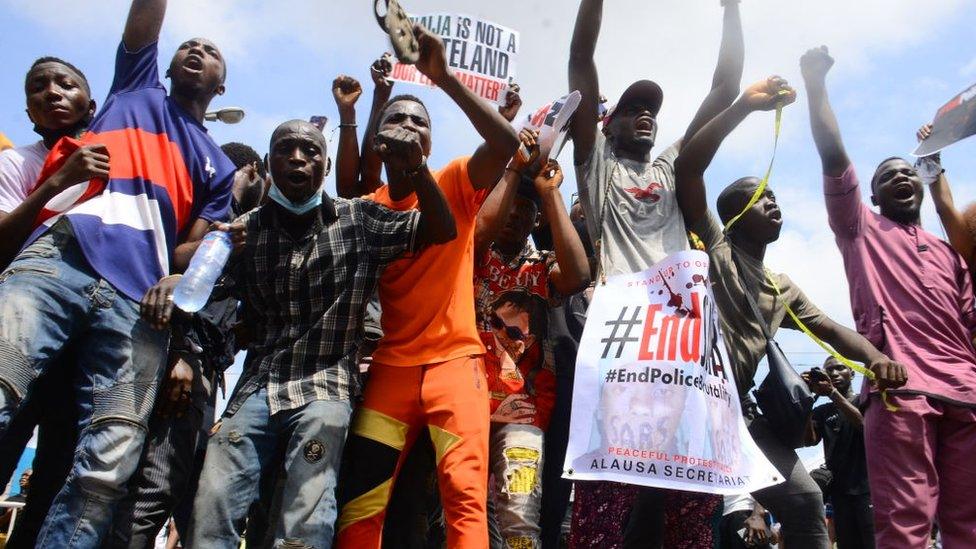
The #EndSars protests have been described as a watershed moment in Nigeria's history
Legislators say the new law provides for an "efficient and effective police force that is based on the principles of accountability and transparency; protection of human rights and fundamental freedoms; and partnership with other security institutions".
But the 2020 act has its sceptics, including Mr Nwanguma.
He said successive governments have set up committees to look into police reforms but their recommendations have never been carried out.
"Between former Presidents Olusegun Obasanjo and Goodluck Jonathan we had three different committees - under this Buhari administration we have also had some but there has been no political will to implement far-reaching reforms," he said.
He added that the political will is lacking to implement reforms because politicians prefer the police the way it is so they can use officers for their own objectives, "one of which is rigging elections".
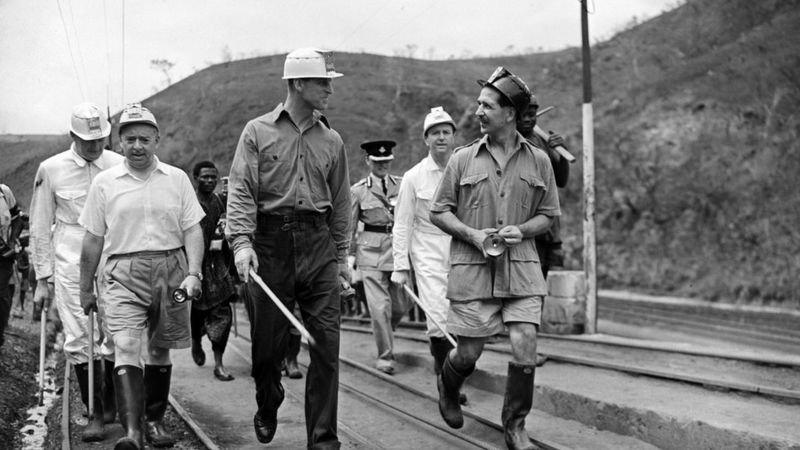
Queen Elizabeth's husband Prince Philip (C) visited the Iva Valley mine in 1956
The police spokesperson did not respond to requests for comment but a former spokesperson who now helps run the police's public relations college agreed that there was an issue with the colonial legacy.
"Don't forget that the initial police created by the colonial masters wasn't to enforce rights, their intention wasn't to do us good, but to do us evil," Emmanuel Ojukwu told the BBC.
But he has faith that the legal reforms will transform the force.
"This [new] law, for the first time says that the basic objective of the police is to protect human rights."
Related topics
- Published15 June 2020
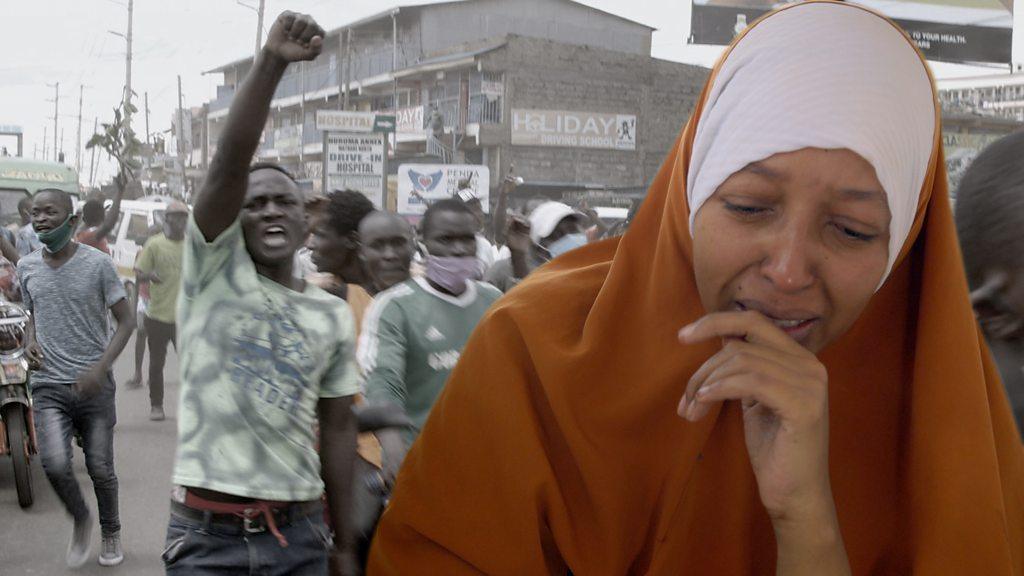
- Published17 January 2021
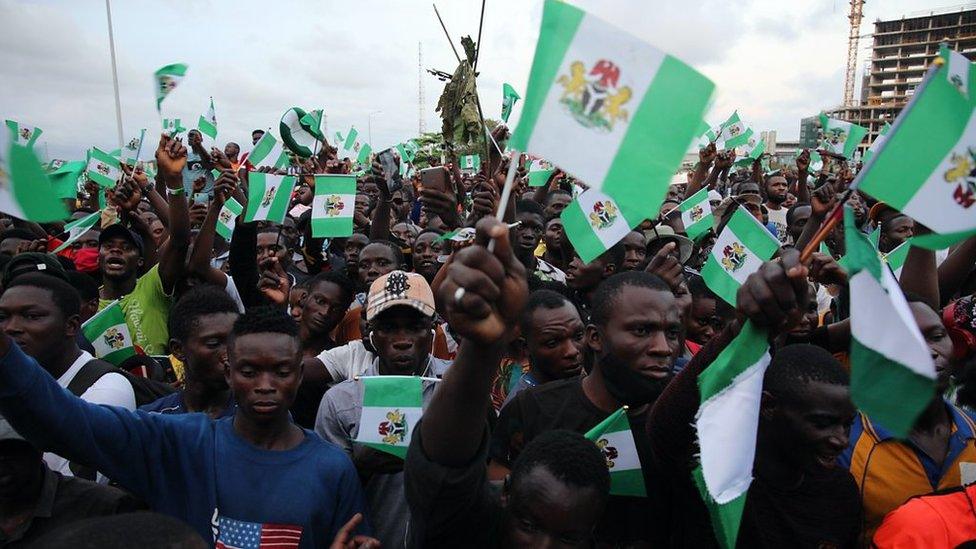
- Published1 December 2020

- Published3 November 2020

- Published17 November 2020
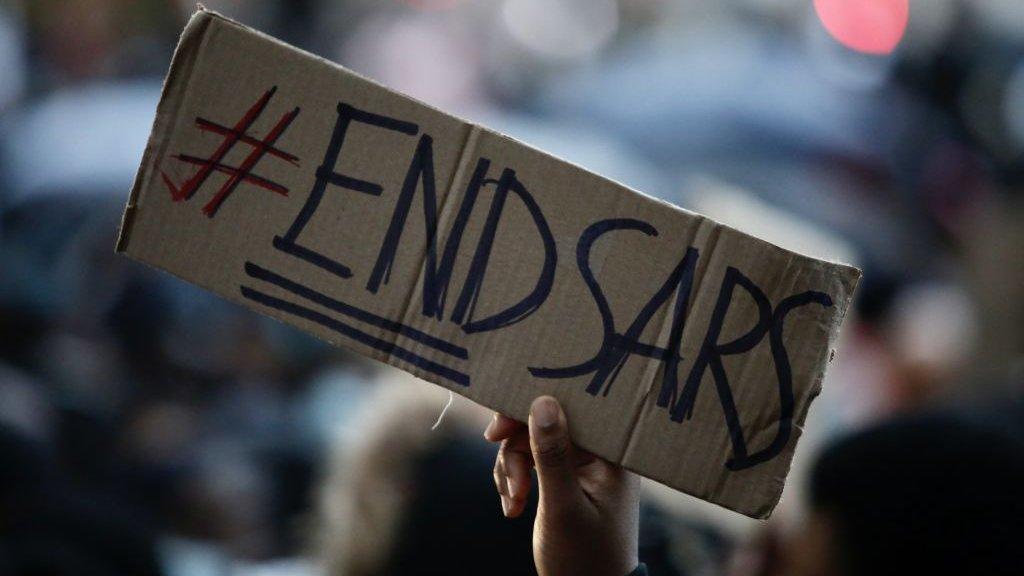
- Published17 November 2020
